Against the depressing backdrop of post-independence India’s educationally short-changed citizens floundering in shallows and misery rooted in learning deprivation, news that the new-genre digital technologies-driven Khan Academy, USA has pitched tent in New Delhi offers hope of a countrywide learning revolution: Dilip Thakore
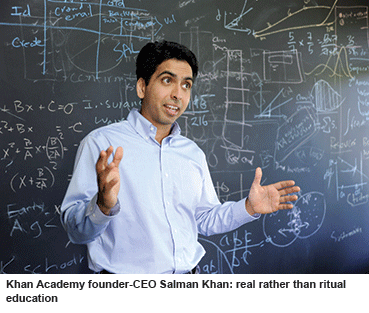 This cover feature is being written on the eve of January 26, when India’s establishment and creamy layer will celebrate the nation’s 67th Republic Day with a grand show of military prowess with a ceremonial regalia march past of specially selected units of the country’s 1 million-plus defence forces. On the day, President Pranab Mukherjee will take the salute from the armed forces, state government flotillas and squads of the National Cadet Corps (NCC). France’s President Francois Hollande whose top priority is to seal a Rs.2,000-crore deal with the government of India to purchase 36 Rafale fighter jets for the Indian Air Force, will be in attendance as chief guest.
This cover feature is being written on the eve of January 26, when India’s establishment and creamy layer will celebrate the nation’s 67th Republic Day with a grand show of military prowess with a ceremonial regalia march past of specially selected units of the country’s 1 million-plus defence forces. On the day, President Pranab Mukherjee will take the salute from the armed forces, state government flotillas and squads of the National Cadet Corps (NCC). France’s President Francois Hollande whose top priority is to seal a Rs.2,000-crore deal with the government of India to purchase 36 Rafale fighter jets for the Indian Air Force, will be in attendance as chief guest.
But for the hundreds, if not thousands of children press-ganged into marching down Rajpath in smart NCC uniforms, Republic Day is unlikely to be an occasion for celebration or pride. Because India’s 480 million children — the world’s largest child population — don’t have a bright future to which they can look forward with confidence. The country’s public education system — particularly early childhood and primary-secondary schooling — which should have been the top development priority of successive governments in New Delhi and the Republic’s 29 states and seven centrally-administered Union territories during the past six decades, is in a shambles.
Facts and data about the neglect of public education are as irrefutable as they are shameful and have been repeatedly highlighted in EducationWorld (see cover story ‘Heavy price of education neglect’, EW January/educationworldonline.net archives), and in a small minority of other, publications and NGOs for over a decade. Despite this, the Central and state governments, the establishment and even academia, are blind to the reality that high-quality education — especially early childhood and primary education which builds human capital — is the foundation block of national development. In the Union Budget 2015-16, for the first time in the history of post-independence India the annual outlay for education was slashed from the Rs.82,771 crore budgeted in 2014-15 to Rs.69,075 crore. Moreover the budget for early childhood education was slashed from Rs.18,195 crore to Rs.8,355 crore.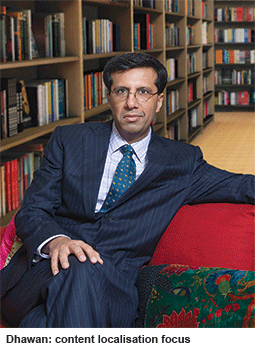
Nevertheless, the education sector isn’t a picture of unrelieved gloom. Despite sustained under-investment across the education spectrum in eight detailed but worthless Soviet-style Central five-year-plans formulated with great hype and hoopla during the past six decades, India’s private school system has survived, and even modestly prospered. Currently an estimated 30-40 percent of 230 million school-going children are enrolled in 200,000 private ‘recognised’ schools with a growing number of low-income households preferring to sign up their children in fees-levying private rather than the country’s 1.2 million free-of-charge government schools defined by lack of basic infrastructure, chronic teacher absenteeism and abysmal learning outcomes.
It’s a telling indictment of the shabbily-run public education system that an estimated 60 million children from poor households are currently studying in 300,000 officially unauthorised low-cost private budget schools which have cropped up in urban slums and under-schooled rural habitations, rather than attend free-of-charge government schools which also provide a free mid-day meal.
In this context, it’s also pertinent to note that the promotion of private schools is officially discouraged by way of continuous government interference with their admission processes and fees structures, despite the Supreme Court having upheld the right of all citizens to establish and administer educational institutions of their choice, and to earn a reasonable return on investment. Moreover, instead of focusing their attention and energies on improving academic standards and learning outcomes in the 1.2 million government schools, education officials of state governments are working hard at closing down private budget schools under s. 19 of the Right of Children to Free & Compulsory Education (RTE) Act 2009, which stipulates stringent infrastructure and teacher-pupil ratio norms for all schools. Unsurprisingly, the Act exempts government schools from forcible closure on these grounds. And paradoxically, the myopic middle class which shuns government schools is not averse to government regulating the admission processes and tuition fees of private schools and letting in the Trojan horse of government through the gates.
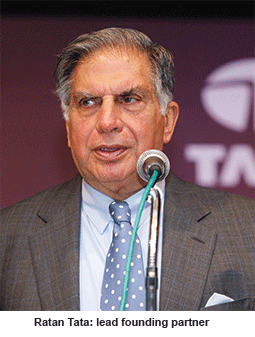 Against this depressing scenario of the overwhelming majority of the country’s government schools experiencing a continuous flight of best students into private institutions (of whom a few hundred offer globally comparable learning outcomes), there’s good news. The new genre, digital technologies-driven Silver Mountain, California-based Khan Academy, promoted in 2006 by the MIT and Harvard Business School-educated Salman Khan (not to be confused with top-ranked biff, bang, Bollywood star of the same name), has pitched tent in New Delhi.
Against this depressing scenario of the overwhelming majority of the country’s government schools experiencing a continuous flight of best students into private institutions (of whom a few hundred offer globally comparable learning outcomes), there’s good news. The new genre, digital technologies-driven Silver Mountain, California-based Khan Academy, promoted in 2006 by the MIT and Harvard Business School-educated Salman Khan (not to be confused with top-ranked biff, bang, Bollywood star of the same name), has pitched tent in New Delhi.
On December 3, the Khan Academy signed a collaboration agreement with the Delhi-based Central Square Foundation (CSF). Promoted by Ashish Dhawan, former ChrysCapital CEO, in 2012 with an endowment corpus of Rs.50 crore, the foundation will “translate Khan Academy’s platform to offer maths video tutorials and practice exercises in Hindi for students in classes V-VIII”.
“The effort will focus on localisation as well as pilot implementation of the Khan Academy platform. Localisation will include dubbing more than 500 curriculum-mapped mathematics videos and translating corresponding practice exercises into conversational Hindi. The videos and exercises will cover a range of topics like geometry, algebra, basic arithmetic, number systems and measurement. For the pilot implementation, CSF will work with partners to launch the Hindi platform in schools,” says Dhawan, who after establishing ChrysCapital into the country’s pioneer #1 venture capital fund, morphed into a full-time edupreneur and promoted CSF “to achieve transformational standards of excellence for the Indian school education system”.
Dhawan is also the prime mover behind post-independence India’s most ambitious crowd-funded liberal arts private Ashoka University (estb. 2014).
Three days later, on December 6, the Mumbai-based Tata Trusts, set up by the country’s wealthiest business group (aggregate annual revenue: Rs.685,000 crore), signed a “strategic agreement as the lead founding partner” with the Khan Academy “to leverage technology for providing free and quality education for anyone based anywhere in India”. “Today, people demand self-respect, access to knowledge and have an urge to enhance their livelihoods and Tata Trusts are committed to help them do so by creating a difference in their lives,” said Ratan Tata, chairman of Tata Trusts, speaking on the occasion without disclosing the trusts’ financial commitment.
The imminent rollout of Khan Academy’s operations in India and the enthusiastic response it has received from some of the biggest and most respected names in industry, philanthropy and education, offers an unprecedented opportunity to introduce real rather than ritual education into the country’s 1.4 million schools, and 1.2 million government schools in particular.
It’s important to bear in mind that Khan Academy (KA) is not just another missionary education institution or group offering new pedagogies. It’s a disruptive 21st century online global academy which in a decade since it was modestly launched as an online tutorial class for Khan’s nieces and nephews in 2006, has produced 7,000 instructional videos with its website (khanacademy.org) offering more than 150,000 practice exercises, accessed free-of-charge by 31 million registered learners, and over 1 million registered teachers in 190 countries worldwide. Currently the KA website receives 15 million visits per month and the academy’s 100 online tutors have delivered 580 million lessons and students and visitors have solved over 4 billion — mainly maths and science — problems to acquire a better understanding of the fundamental concepts and precepts of these much-dreaded subjects.
Although typically, KA and its celebrated founder-chairman Salman Khan are not yet household names in India mainly because of poor internet and broadband connectivity and preference for traditional chalk-n-talk pedagogies in schools, in the US and UK, Khan has acquired cult status and popularity equal to his Bollywood counterpart in India. “The next half-century of education innovation is being shaped right now. After decades of yammering about ‘reform’, with more and more money spent on declining results, technology is finally poised to disrupt how people learn. And that creates immense opportunities for both for-profit entrepreneurs and non-profit agitators like Khan,” commented the authoritative Forbes in a 2012 feature. “It’s no exaggeration to say that there’s a revolution coming in education, sparked by Sal Khan,” says Rohan Silva, senior technology adviser to British prime minister David Cameron quoted in The Guardian (2013).
Yet perhaps more important than the endorsements of hurried journalists — Time included him in its annual list of the world’s 100 most influential people in 2012, with Microsoft Inc founder Bill Gates writing the tribute (“Sal Khan is a true education pioneer. He started by posting a math lesson, but his impact on education might truly be incalculable”) — are the financial endowments aggregating (undisclosed) that KA has received over the past ten years. Among the donors: Google, O’Sullivan Foundation (Ireland), Bill & Melinda Gates Foundation and Mexican telecom billionaire Carlos Slim. In the calendar year 2013 the academy reported endowment receipts of $33.7 million (Rs.227.8 crore) and $34 million in 2014. Meanwhile, the KA headcount has risen to 100 with some of America’s most-qualified online content developers and IT professionals chucking up highly-paid jobs to sign up with the academy which pays its founder $100,000 (Rs.66 lakh) per year, a fraction of the annual payout he earned as a Wall Street hedge fund manager way back in 2006.
“Admittedly given the country’s uniquely heterogeneous population and languages and connectivity problems, KA (India) won’t be an overnight success. But with broadband connectivity and smart phones technology improving very rapidly, online and offline content will become more accessible to the majority of the population. With India’s youthful demographics hungry for education, I am optimistic that if it’s given access to high quality content anywhere, anytime, the country will experience a learning revolution,” says Salman Khan. (see interview p.54)
There’s a strong possibility that Khan’s confidence about KA being able to sharply improve learning outcomes in Indian school education and within the potentially huge community of self-learners who have dropped out of the formal education system, will prove justified. The digital, personalised self-learning system he has invented is eminently suitable for the subcontinent where formalised learning systems are obsolete and learning outcomes rock-bottom.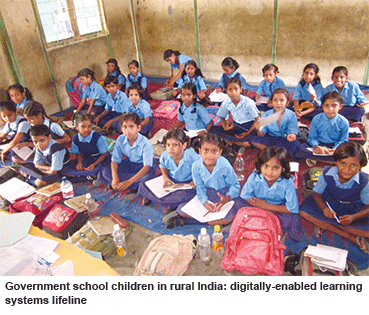
For instance, it’s well documented by the Annual Status of Education Report (ASER), published by the highly-respected Mumbai-based NGO Pratham which assesses the comprehension and maths learning of children in 586 rural districts (out of total of 688), that 53 percent of class V children cannot read and comprehend class II texts and 81.1 percent can’t do simple division sums. As a result, over 53 percent of children enrolled in primary school at the beginning of each year drop out before completing class VII. And of the remainder, only 30 million complete secondary school and a mere 20 million are in higher education. For primary and secondary school dropouts, and children trapped in the country’s resources-starved government schools where multi-grade teaching by lone teachers is normative, KA’s tried and tested digitally enabled learning systems offer a rejuvenating lifeline and a second chance to get their learning — and lives — back on track.
The chances of success of Khan’s unique tutorial-style pedagogy are good because it isn’t based on a theoretical construct, but on his own practical experience of self and assisted learning. Although details of his early life are sketchy, Khan, the son of a Bangladeshi father and Indian mother who divorced when he was only three years of age, had a hard childhood in New Orleans, USA. He was raised by his single mother, who took on several low-paid jobs as he made his passage through a public (government) primary-secondary school whose “Prussian style” regimented culture he hated. Lovingly and patiently tutored at home by his elder sister Farah, he was way ahead of his class — especially in science and maths — and won a scholarship to the Massachusetts Institute of Technology, widely rated the world’s premier science and technology university.
Khan’s unsatisfactory experience of the chalk-n-talk and lecture-style education deeply influenced the evolution of the one-on-one pedagogy made possible by the internet and digital revolutions which have taken America and the Western countries by storm and earned him the reputation of the world’s most admired super-star teacher.
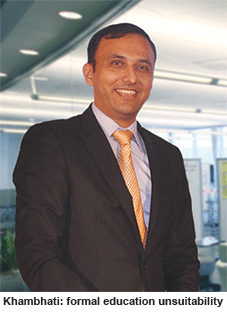 In his bestseller book The One World School House (2012), which stops short of being an autobiography because it only tangentially mentions his early childhood and school years, Khan narrates how student-unfriendly school and collegiate experiences prompted him to quit his investment banking job in 2009, and start his online free-of-charge global school with one personal computer, $20 worth of screen capture software and a $80 pen tablet. Firmly convinced that in the 21st century information era “the pace of change is so swift that deep creativity and analytical thinking are no longer luxuries but survival skills”, Khan composed a “wildly ambitious” mission statement for the new enterprise: “With the help of readily available, but absurdly underutilised technology — completely attainable” to “provide a free, world-class education for anyone, anywhere”.
In his bestseller book The One World School House (2012), which stops short of being an autobiography because it only tangentially mentions his early childhood and school years, Khan narrates how student-unfriendly school and collegiate experiences prompted him to quit his investment banking job in 2009, and start his online free-of-charge global school with one personal computer, $20 worth of screen capture software and a $80 pen tablet. Firmly convinced that in the 21st century information era “the pace of change is so swift that deep creativity and analytical thinking are no longer luxuries but survival skills”, Khan composed a “wildly ambitious” mission statement for the new enterprise: “With the help of readily available, but absurdly underutilised technology — completely attainable” to “provide a free, world-class education for anyone, anywhere”.
To attain this ambitious new technologies-driven objective Khan designed a pedagogy based on his conviction that teaching should be “straightforward and deeply personal”. “I wanted to teach the way that I myself had been taught. Which is to say that I hoped to convey the sheer joy of learning, the thrill of understanding things about the universe. I wanted to pass along to students not only the logic, but the beauty of math and science,” he writes in TOWHS.
In particular, in designing the radical pedagogy and teaching-learning processes of KA, Khan expresses his total aversion to the “dreary process” of “rote memorisation and plug-in formulas aimed at nothing more lasting or meaningful than good grades in the next exam” — the dominant pedagogy across the spectrum in Indian education. “I passionately believe that the Khan Academy is a tool that can empower at least an approximate model of what the future of education should look like — a way of combining the art of teaching with the science of presenting and analysing data, of delivering the clearest, most comprehensive, and most relevant curriculum at the lowest possible cost,” writes Khan.
KA’s “relevant curriculum” is heavily influenced by the one-on-one tutorial rather than the chalk-n-talk lecture delivered to classrooms. The entire screen of the tablet or computer is filled with writing, numbers or formulae with at best only a rear sideshot and fingers of the teacher visible to the learner as she reads or provides an explanatory solution to a maths or science problem.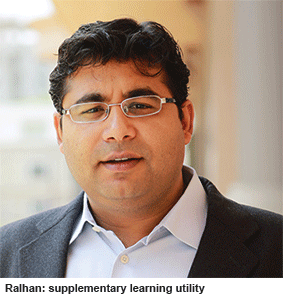
This lessons delivery format eliminates the “distraction” of the face of the teacher, says Khan. Moreover, a distinguishing feature of KA tutorials is that it allows students to work at their own pace with the technology empowering them to learn “by hitting the pause button” and re-viewing lessons until they grasp concepts they don’t understand. Conversely the system enables quick learners to be way ahead of their classroom curriculums through practising mathematical and science problems, “testing themselves out” and moving to the next level.
Ahe chances of success of Khan’s unique tutorial-style pedagogy are good because it isn’t based on a theoretical construct, but on his own practical experience of self and assisted learning. Although details of his early life are sketchy, Khan, the son of a Bangladeshi father and Indian mother who divorced when he was only three years of age, had a hard childhood in New Orleans, USA. He was raised by his single mother, who took on several low-paid jobs as he made his passage through a public (government) primary-secondary school whose “Prussian style” regimented culture he hated. Lovingly and patiently tutored at home by his elder sister Farah, he was way ahead of his class — especially in science and maths — and won a scholarship to the Massachusetts Institute of Technology, widely rated the world’s premier science and technology university.
Khan’s unsatisfactory experience of the chalk-n-talk and lecture-style education deeply influenced the evolution of the one-on-one pedagogy made possible by the internet and digital revolutions which have taken America and the Western countries by storm and earned him the reputation of the world’s most admired super-star teacher.
In his bestseller book The One World School House (2012), which stops short of being an autobiography because it only tangentially mentions his early childhood and school years, Khan narrates how student-unfriendly school and collegiate experiences prompted him to quit his investment banking job in 2009, and start his online free-of-charge global school with one personal computer, $20 worth of screen capture software and a $80 pen tablet. Firmly convinced that in the 21st century information era “the pace of change is so swift that deep creativity and analytical thinking are no longer luxuries but survival skills”, Khan composed a “wildly ambitious” mission statement for the new enterprise: “With the help of readily available, but absurdly underutilised technology — completely attainable” to “provide a free, world-class education for anyone, anywhere”.
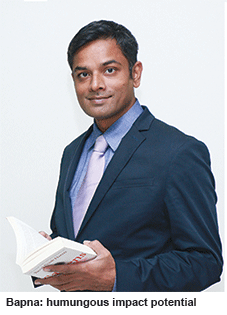 To attain this ambitious new technologies-driven objective Khan designed a pedagogy based on his conviction that teaching should be “straightforward and deeply personal”. “I wanted to teach the way that I myself had been taught. Which is to say that I hoped to convey the sheer joy of learning, the thrill of understanding things about the universe. I wanted to pass along to students not only the logic, but the beauty of math and science,” he writes in TOWHS.
To attain this ambitious new technologies-driven objective Khan designed a pedagogy based on his conviction that teaching should be “straightforward and deeply personal”. “I wanted to teach the way that I myself had been taught. Which is to say that I hoped to convey the sheer joy of learning, the thrill of understanding things about the universe. I wanted to pass along to students not only the logic, but the beauty of math and science,” he writes in TOWHS.
In particular, in designing the radical pedagogy and teaching-learning processes of KA, Khan expresses his total aversion to the “dreary process” of “rote memorisation and plug-in formulas aimed at nothing more lasting or meaningful than good grades in the next exam” — the dominant pedagogy across the spectrum in Indian education. “I passionately believe that the Khan Academy is a tool that can empower at least an approximate model of what the future of education should look like — a way of combining the art of teaching with the science of presenting and analysing data, of delivering the clearest, most comprehensive, and most relevant curriculum at the lowest possible cost,” writes Khan.
KA’s “relevant curriculum” is heavily influenced by the one-on-one tutorial rather than the chalk-n-talk lecture delivered to classrooms. The entire screen of the tablet or computer is filled with writing, numbers or formulae with at best only a rear sideshot and fingers of the teacher visible to the learner as she reads or provides an explanatory solution to a maths or science problem.
This lessons delivery format eliminates the “distraction” of the face of the teacher, says Khan. Moreover, a distinguishing feature of KA tutorials is that it allows students to work at their own pace with the technology empowering them to learn “by hitting the pause button” and re-viewing lessons until they grasp concepts they don’t understand. Conversely the system enables quick learners to be way ahead of their classroom curriculums through practising mathematical and science problems, “testing themselves out” and moving to the next level.
The probable impact of the Khan Academy on India’s primary-secondary education sector is brilliantly explained by Clifford Maxwell, research fellow at the Clayton Christensen Institute, a San Francisco-based think tank which researches disruptive innovations. “In the US K-12 education sector, there is near universal consumption… But in developing countries, non-consumption is a different story. In India, there are 1.4 million children aged six through 11 who do not attend school, and 42 percent of all students drop out before completing primary school. These numbers are what make Khan Academy’s partnership with Tata Trusts so interesting, because the company will be dealing with high volumes of non-consumers who face very different challenges than children who are already attending school. Furthermore, these individuals aren’t demanding the same level of performance that schools in India can provide because their current alternative is no schooling at all. In this type of environment, Khan Academy could have fertile ground in which to plant disruptive seeds — that is, innovative solutions that make learning ever more simple, accessible, and convenient,” writes Maxwell on his blog (January 5).
Little wonder, given the huge population of non-consumers of elementary education — estimated at 400 million — Sandeep Bapna, the Delhi-based CEO of Khan Academy (India), is excited and optimistic about the possibility of the academy enabling India’s huge population of illiterates and school dropouts to resume learning the 3 Rs (reading, writing and ‘rithmetic), and perchance beyond. If to this 400 million, one adds teachers and children of 1.2 million government primaries who are unfulfilled learners, the potential impact of KA’s India debut is humungous in terms of boosting productivity in every sector of the Indian economy.
“Over 3.5 million learners in India are already on the KA platform and the number is growing at 45 percent per year.
Admittedly there is the major problem of digital connectivity, but I believe that government and India’s proactive telecom industry is likely to solve the problem of broadband connectivity within the next three-five years. Right now we are recruiting a team which will start building comprehensive maths and science curriculums for classes I-XII following NCERT guidelines which will be translated into Hindi by the Central Square Foundation. Therefore I am very optimistic that the Khan Academy which is here for the long term will enable tens of millions of non-consumers of education to resume learning and acquire the skills to substantially improve their lives and standards of living,” says Bapna, an alum of IIT-BHU and IIM-Calcutta who acquired valuable business and online learning experience while working with the International Finance Corporation, Washington and Engrami, a Delhi-based company which creates online learning communities, before signing up with KA early this year.
The great majority of India’s educationally short-changed citizens floundering in shallows and misery rooted in learning deprivation, couldn’t have received a better Republic Day gift.























